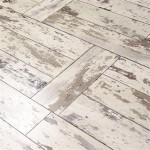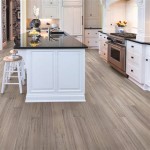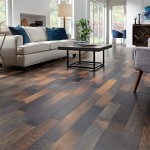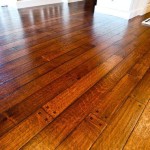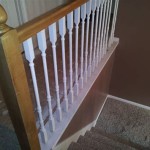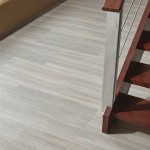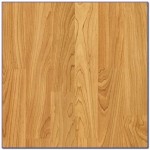Interlocking Outdoor Patio Tile Flooring: A Durable and Stylish Choice
Creating a beautiful and functional outdoor living space often hinges on choosing the right flooring. Interlocking outdoor patio tile flooring has emerged as a popular option thanks to its blend of durability, style, and ease of installation. This type of flooring comprises individual tiles that connect seamlessly, offering a versatile solution for patios, decks, pool surrounds, and walkways.
Advantages of Interlocking Outdoor Patio Tile Flooring
Interlocking outdoor patio tile flooring offers numerous advantages that make it a compelling choice for homeowners and landscape designers:
- Durability: These tiles are typically made from high-quality materials like concrete, porcelain, or natural stone, designed to withstand harsh weather conditions, foot traffic, and UV exposure. Their interlocking design enhances stability and prevents shifting or sinking.
- Ease of Installation: Installing interlocking tiles is generally straightforward, even for DIY enthusiasts. The interlocking system eliminates the need for mortar or adhesives, making installation faster and less messy.
- Versatility: Interlocking tiles come in a wide array of colors, sizes, and patterns, offering endless design possibilities to match any style preference. Some tiles even mimic the appearance of natural materials like wood or brick.
- Maintenance: Maintaining interlocking patio tile flooring is relatively simple. Regular sweeping and occasional cleaning with a mild detergent are usually sufficient to keep it looking its best.
Types of Interlocking Outdoor Patio Tiles
The world of interlocking patio tiles offers a diverse range of options, each with distinct characteristics:
- Concrete Tiles: Concrete tiles are renowned for their durability, affordability, and wide range of colors and textures. They are a versatile choice for patios, walkways, and pool surrounds.
- Porcelain Tiles: Porcelain tiles boast excellent resistance to scratches, stains, and fading. Their sleek and modern aesthetics make them ideal for contemporary outdoor spaces.
- Natural Stone Tiles: Natural stone tiles, such as slate, travertine, or flagstone, offer a timeless elegance and unique character. They often have natural variations in color and texture, adding depth and warmth to outdoor settings.
- Composite Tiles: Composite tiles combine different materials, such as recycled plastic and wood fibers, to create durable and eco-friendly flooring options. They often mimic the appearance of natural materials like wood or stone.
Considerations for Choosing Interlocking Patio Tiles
When selecting interlocking patio tiles, several factors should be considered:
- Budget: Different materials and features come with varying price points. Concrete tiles tend to be more budget-friendly, while natural stone and porcelain tiles are generally more expensive.
- Style and Aesthetics: Consider the overall style of your outdoor space and choose tiles that complement it. Consider factors like color, pattern, and texture.
- Climate: Choose tiles that can withstand the climate in your region. For example, tiles with good frost resistance are essential in colder climates.
- Traffic Levels: If your patio will see heavy foot traffic, opt for durable tiles that can handle wear and tear.
- Accessibility: Ensure that the chosen tiles are slip-resistant, especially in areas prone to water accumulation.
Installation Tips for Interlocking Patio Tiles
Installing interlocking patio tiles is a relatively straightforward process. Here are a few essential tips:
- Prepare the Subgrade: Ensure a level and well-compacted subgrade for proper drainage and stability.
- Use a Level: Employ a level to ensure that the tiles are installed at a consistent level. This will prevent tripping hazards and ensure a visually appealing outcome.
- Leave Expansion Joints: Leave room for expansion and contraction due to temperature fluctuations. Expansion joints can be filled with sand or a suitable filler material.
- Compact the Sand: After laying the tiles, compact the sand between them using a plate compactor or a vibrating tamper. This will ensure proper support and prevent settling.
Interlocking outdoor patio tile flooring offers a durable, stylish, and versatile solution for enhancing outdoor living spaces. With proper planning and installation, this flooring choice can provide years of enjoyment and beauty.

Btmway 1 Ft X Square Interlocking Acacia Wood Quick Patio Deck Tile Outdoor Checker Pattern Flooring 10 Per Box Cxxbn Gi33346w685 Tile01 The Home Depot

Outdoor Flooring Over Grass Or Dirt Interlocking Tiles

Perforated Interlocking Patio Tiles Over Concrete Made In Usa

Interlocking Ipe Wood Deck Tiles From Arrak Quick And Easy To Install

Perforated Interlocking Patio Tiles Over Concrete Made In Usa

Plastic Interlocking Deck Tiles 1 Pack Patio 12 X12 Waterproof Outdoor Flooring All Weather Use Floor Decking For Porch Poolside Balcony Backyard Dark Grey Com

Easyfashion 12 X Interlocking Wood Flooring Tiles For Deck Pack Of 27 Natural Com

Good Benefits Top Uses Of Interlocking Deck Tiles

12 In X Solid Wood Interlocking Deck Tiles Natural Outdoor Flooring For Patio Bancony Pool Side 20 Pcs 21decktiles01r The Home Depot

Perforated Interlocking Patio Tiles Over Concrete Made In Usa
Related Posts

